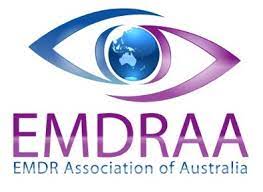The word “trauma” is used widely in today’s language. Wikipedia defines Psychological Trauma as:
“a type of damage to the mind that occurs as a result of a severely distressing event. Trauma is often the result of an overwhelming amount of stress that exceeds one’s ability to cope, or integrate the emotions involved with that experience.”
Trauma for one person may be a normal event for another, therefore, trauma must be evaluated on an individual by individual basis.
Millennial children are more sensitive to their environment than Gen X, Y and the ever robust Baby Boomers. Never before has a generation been so socially active and technically savvy than the adolescents of today.
The pressures on millennial’s from a social, scholastic, technological and environmental standpoint, along with their heightened sensitivities subject today’s adolescent to a higher than expected propensity towards experiencing trauma.
As a therapist, dealing with adolescents who may have been subjected to trauma carries a heavy responsibility.
Traumatized people may be on the verge of seriously contemplating the termination of their life, so having a plan to treat a traumatized person is essential. To this end, Thinkshift utilities a Trauma Informed Therapy Model in dealing with traumatized clients.
The three phases of the model are:
Phase l – Stabilization and stability
Phase ll – Desensitization of the traumatic events and triggers
Phase lll – Integration of the stabilization and desensitized events and triggers
MEMBERSHIPS
ACA (#8312), AACHP (#2003094), EMDRAA (#1001198), PACFA Reg.Clinical 30404





Arcadia, Ardmona, Ballendella, Bonn, Bunbartha, Burnewang, Byrneside, Carag Carag, Colbinabbin, Cooma, Coomboona, Corop, Deakin, Dhurringile, Echuca, Elmore, Fairy Dell, Gillieston, Girgarre, Girgarre East, Harston, Kanyapella, Kialla, Kotupna, Koyuga, Kyabram, Kyabram South, Kyvalley, Lancaster, Merrigum, Moama, Moora, Mooroopna, Mooroopna North, Murchison, Murchison North, Nanneella, Rochester, Rushworth, Shepparton, Shepparton North, Stanhope, Stanhope South, St. Germains, Strathallan, Tallygaroopna, Tatura, Tatura East, Timmering, Tongala, Toolamba, Toolamba West, Undera, Waranga, Waranga Shores, Wyuna, Wyuna East, Yambuna, Zeerust.